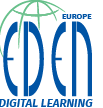
- This event has passed.
Role of the openness in shaping of the post-pandemic education (Role of international associations)
February 10, 2021 @ 00:00
Panel discussion
Description:
We are facing the biggest disruption of education in history caused by the global health pandemic and it is more important than ever to ensure access to education. As schools closed, over a billion of students have been hampered from learning in the way they used to, and inequalities in access to education have become even more evident. If we take the position that education is common good and should be reachable and available to all, it is our obligation to join efforts and work in this direction. Open Educational Resources (OER) can help in achieving inclusive education aiming to ensure that learners with diverse needs and preferences (such as those with disabilities) have equal opportunities in accessing learning resources, services, and learning experience in general. The Open Education movement is evolving, and besides creating and publishing OERs, focus is shifting to Open Education Practices that can be implemented using OER. It is evident that the Covid-19 crisis has resulted in a paradigm shift in how learners of all ages, worldwide, can access learning. It is, therefore essential, more than ever that the global community come together now to foster universal access to information and knowledge through OER.
In this session, we plan to discuss what actions and approaches could be taken by international associations and communities to contribute to this goal.
Questions that will be discussed:
- Why is openness in education and research still an issue?
- How can collaboration and exchange of experience contribute to expanded understanding of benefits of open education?
- How to foster OERs to support learners and educational professionals in online learning? What experiences and initiatives have there been so far?
- How can the visibility of best practices be ensured?
- How can the adoption of OEP in higher education be obtained?
- Does the application of OER and OEP vary depending on the educational level (pre-school to adult education)?
- Has the demand for MOOCs and short non-degree courses changed during pandemic?
Moderator: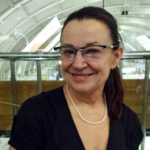 Ebba Ossiannilsson
Ebba Ossiannilsson
Professor, Dr., EDEN EC, EDEN Fellow, EDEN SIG TEL QE
Sweden
Professor, Dr. Ebba Ossiannilsson is a Consultant, Expert, Influencer and Quality Assessor in the field of open, flexible, online, and distance learning, is an advocate and promotes and improves open and online learning in the context of SDG4, and Futures of education. She is on the Executive Committee both for ICDE and EDEN. She works as an international quality assessor for EADTU and ICDE. Ossiannilsson chairs the ICDE OER Advocacy Committee. She has even several other missions for ICDE, as ICDE Quality Network, and she was research director for the Global Overview of Quality Models Study 2014/15, and on Blended Learning 2017. Ossiannilsson received the title EDEN Fellow 2014, the EDEN Council of Fellows 2018, the Open Education Europa Fellow 2015, and ICDE Ambassador for the global advocacy of OER 2017. Ossiannilsson has nearly 20 years of experience in her field. Ossiannilsson works in addition with the European Commission and ITCILO. She works with ICoBC (International Council on Badges and Credentials). She is a member of the Ed Board for several scientific journals, and Guest for several SI. She is regularly invited as a keynote speaker at conferences. Her publications comprises over 200+ At the national level she is Vice President in the Swedish Association for Distance Education (SADE) and National Organization for e- Competence (REK).
Presenters: Sandra Kučina Softić
Sandra Kučina Softić
Dr., Assistant Director for Education and User Support, University Computing Centre (SRCE) Head of the E-learning Centre at SRCE, EDEN President
Croatia
Sandra Kučina Softić is EDEN president and Assistant Director for Education and User Support at the University of Zagreb University Computer Centre (SRCE). Her work is focused on monitoring and fostering the e-learning implementation in higher education institutions in Croatia and providing support and advice to institutions, teachers and students in implementation of new technologies in learning and teaching process. She was appointed Croatian representative in ET2020 Working group on Digital Skills and Technologies (2016-2018) and in ET2020 Working group on Digital Education: learning, teaching and Assessment (2018-2020). She obtained a master’s degree in Digital Education at the University of Edinburgh, UK in 2014 and doctoral degree at the University in Zagreb, Croatia, in 2020. From 2016 to 2019 she was EDEN vice-president for Open Professional Collaboration, and in 2019 elected EDEN President.
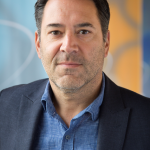 George Ubachs
George Ubachs
Dr., Secretary, General EADTU
Netherlands
George Ubachs is Managing Director of EADTU, the European Association of Distance Teaching Universities. EADTU is Europe’s institutional association of leading universities in online, open and flexible higher education. He is coordinator of international academic cooperation networks on networked curricula, virtual mobility, on business models for lifelong learning, Diversity and Inclusion, E-assessment and AI in education. He is further coordinator of the European MOOC Consortium (EMC), representing the Common Microcredential Framework (CMF) and the E-xcellence movement on quality assurance in online, open and flexible education. In this position, EADTU is leading the ICDE focal point for QA in online education for Europe. With the EMPOWERing universities network, EADTU represents some 80 experts that cover 13 specific fields of expertise related to online, open and flexible education.
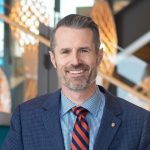 Neil Fassina
Neil Fassina
Professor, President, Athabasca University, CA
President ICDE
Dr. Neil Fassina has been president of Athabasca University since 2016, overseeing the university’s five-year strategic plan to transform AU into a world-leading, digital-first university. Imagine: Transforming Lives, Transforming Communities, is a strategy that builds on AU’s rich history as an innovator in higher education and positions it to take on the challenges of the learners of the future.
As president of Canada’s online university, Neil is a strong advocate for accessible, flexible, lifelong learning to enable adult learners to improve their lives and their communities.
Before joining Athabasca University, Neil held several leadership roles at the Northern Alberta Institute of Technology (NAIT), including provost and vice president academic, as well as dean of the JR Shaw School of Business and the School of Culinary Arts.
Throughout his academic career, Neil has worked to maintain strong connections to the communities he serves, volunteering on the boards of directors for several not-for-profit organizations. He is past chair of the Council of Post-Secondary Presidents of Alberta and is president of the International Council of Distance Education.
With a background in human resources and applied decision-making, Neil has blended his leadership and academic careers in the areas of strategic thinking and planning, leadership, effective negotiation strategies, conflict management, and human resources.
Neil holds a PhD in Management from the Rotman School of Management at the University of Toronto, a BSc in psychology from the University of Calgary, and is a chartered professional in human resources (CPHR), and a chartered director through the Institute of Corporate Directors (ICD.D).
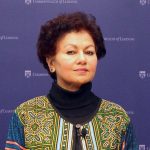 Asha Kanwar
Asha Kanwar
Professor, President & CEO
Commonwealth of Learning
Professor Asha Singh Kanwar, one of the world’s leading advocates of learning for sustainable development, is the President and Chief Executive Officer of the Commonwealth of Learning. Throughout a career spanning over 35 years, she has made outstanding contributions in the areas of teaching, research and international development.
Professor Kanwar received her undergraduate, Master’s and MPhil degrees from the Panjab University in India and a DPhil from the University of Sussex, UK. Her areas of expertise include open distance and technology-enabled learning, open educational resources, quality assurance, gender and organizational development. Professor Kanwar has written and edited a dozen books, published over 100 papers and articles, and delivered numerous keynotes at prestigious international conferences.
Prior to joining COL, Professor Kanwar was a senior consultant in open and distance learning at UNESCO’s Regional Office for Education in Africa (BREDA). She has also served as Director, School of Humanities and as Pro-Vice Chancellor at the Indira Gandhi National Open University (IGNOU) in New Delhi, India. She was a Fulbright Fellow for post-doctoral research at Iowa State University in the US, where she was later invited to teach. Currently, she serves on the boards of several organizations, including the Governing Board of the UNESCO Institute for Information Technologies and Education (IITE).
Professor Kanwar won several international awards, including the International Council for Open and Distance Education (ICDE) Prize of Excellence, and the Meritorious Service Award for outstanding contributions in open and distance education from the Asian Association of Open Universities. She has been conferred eight honorary doctorates from Universities in Asia, Africa, Europe and North America.
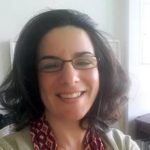 Zeynep Varoglu
Zeynep Varoglu
Dr., UNESCO OER Dynamic Coalition
Zeynep Varoglu is the Programme Specialist in the Digital Innovation and Transformation Section of the Communications and Information Sector at UNESCO Headquarters in Paris. Ms. Varoglu‘s work currently focuses on the implementation of the UNESCO OER Recommendation and the UNESCO ICT Competency Framework for Teachers (ICT CFT) as well as initiatives in open, distance, flexible and online education. Ms Varoglu holds a Bachelor of Arts (B.A.) from the University of Toronto and a Master of Education (M.Ed) from the Ontario Institute for Studies in Education (O.I.S.E.), University of Toronto.
 Eva Cendon
Eva Cendon
Professor, Vice-President EUCEN
Prof. Cendon is an educational scientist involved in lifelong learning with focus on higher education in the German speaking and European context since many years. She acts as national and international expert for competency and learning outcome orientation, for teaching and learning in higher education, new roles of teachers and ways of implementing lifelong learning at universities. Eva is professor of University Continuing Education & Teaching and Learning at the FernUniversität in Hagen, Germany, and Vice-President of EUCEN, the European University Lifelong Learning Network. Her main expertise and research interest lies new forms of linking academic and professional knowledge in university teaching and learning.
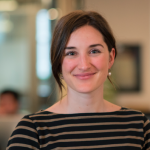 Lena Patterson
Lena Patterson
Vice-President of the Board of Directors at Open Education Global
Lena is Senior Director, Programs and Stakeholder Relations at eCampusOntario. Lena has eight years of experience working in and alongside government at the provincial and federal level and five years of experience in non-profit and post-secondary education.Lena has been part of the eCampusOntario team since the organization was created in August 2015. She worked closely with academic and government partners to establish the collaborative consortium model and now heads up a growing project team in her role as Senior Director, Programs and Stakeholder Relations. Lena’s work has focused on bridging higher education and industry, online and technology-enabled teaching and learning, and open education. Lena is Vice-President of the Board of Directors at Open Education Global.
Lena is currently pursuing doctoral studies at Western University in the EdD program in Educational Leadership.
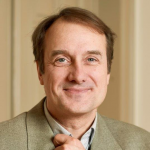 Michael Gaebel
Michael Gaebel
Higher Education Policy Unit of the European University Association (EUA)
Michael Gaebel is the Director of the Higher Education Policy Unit of the European University Association (EUA), which follows the Bologna Process, issues in learning and teaching, including lifelong learning, digitally enhanced learning, internationalisation and global dialogue. Michael represents EUA in the Bologna Follow-up Group, and has been actively involved in several of its working groups over the past decade. EUA represents 33 national university associations (rectors’ conferences) and more than 800 universities from all over Europe.
